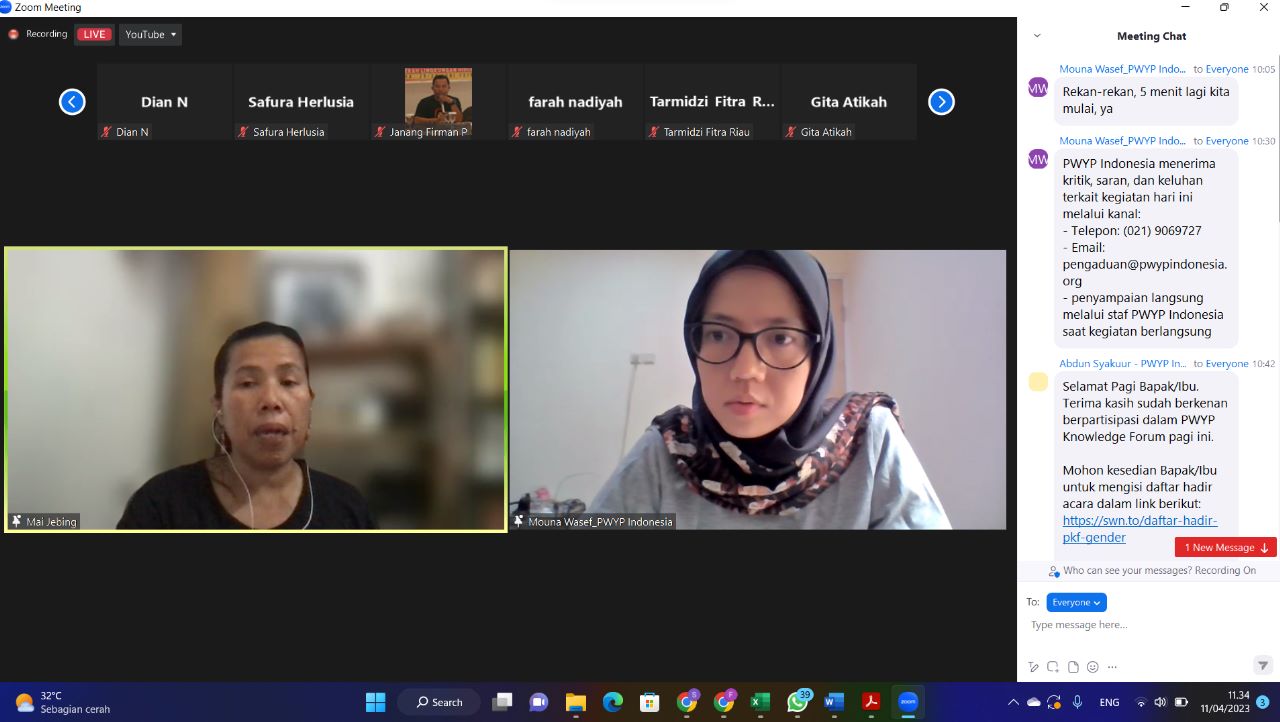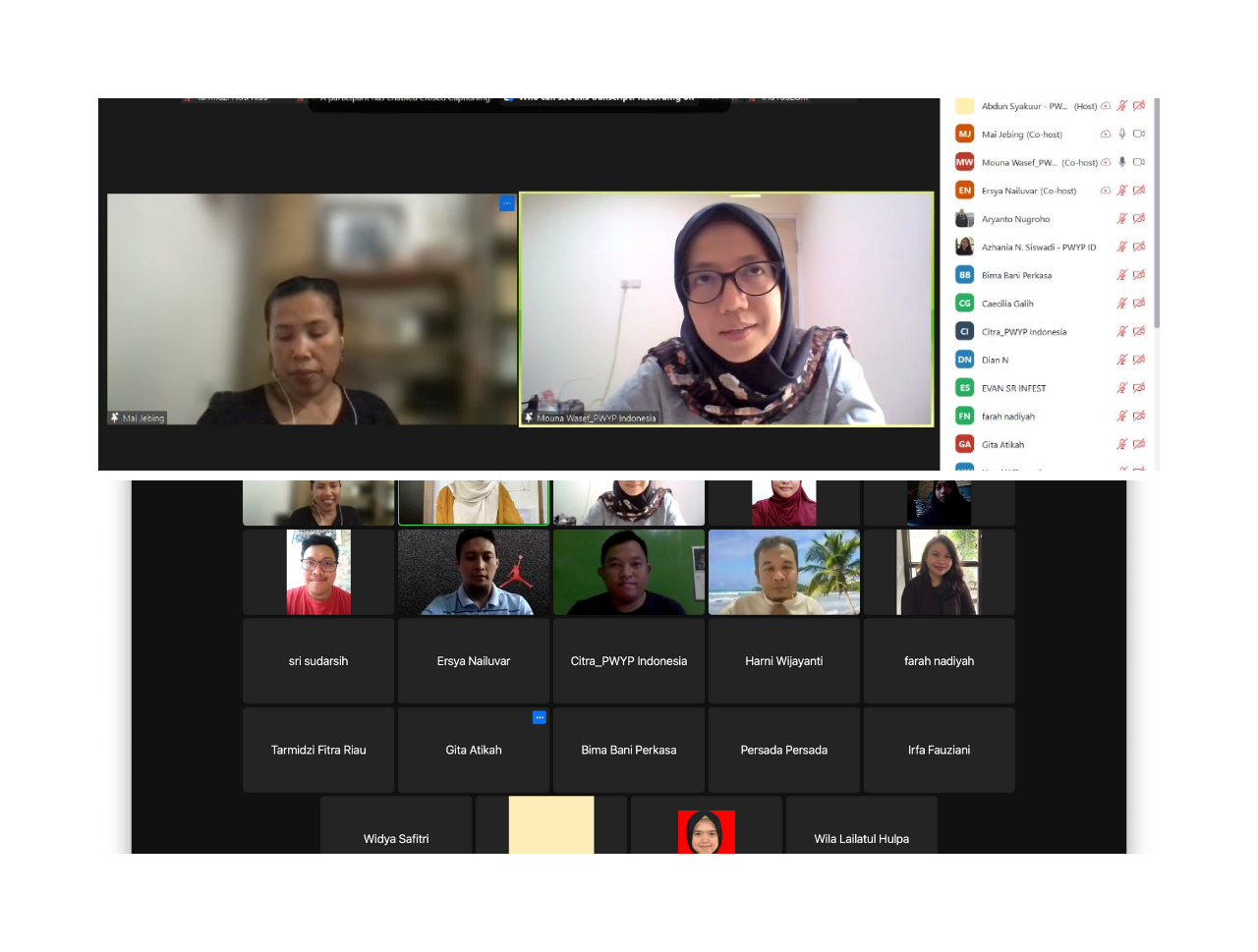Publish What You Pay (PWYP) Indonesia held a PWYP Knowledge Forum (PKF) entitled “Gender Inclusiveness and Just in Indonesia’s Energy Transition” on April 11, 2023, online. This activity presented Siti Maemunah, Sajogyo Institute researcher and founder of the Women and Mining Working Team, as a resource person. This PKF aims to increase the understanding of civil society organizations while disseminating the idea of gender inclusion and justice as a prerequisite for implementing the energy transition.
Energy transition has become a crucial issue that encourages various countries to use renewable energy. Indonesia has ratified the Paris Agreement agreed upon at the COP 21 Summit in 2015 through Law (UU) Number 16 of 2016 concerning Ratification of the Paris Agreement. Through this agreement, Indonesia and other countries are committed to accelerating decarbonization and maintaining the global temperature target of 1.5°C (UNFCC, 2016) and to expedite decarbonization, Indonesia and the G7 countries launched the Just Energy Transition Partnership (JETP) in November 2022 (Joint Statement GOI and IPG, 2022). This initiative is expected to accelerate Indonesia’s transition from fossil to renewable energy. Although, as the Clean Indonesia Coalition notes (2023), there is the potential that JETP funds will be used to support false solutions that continue to rely on the coal industry.
Moreover, while recognizing the need for an equitable transition has grown recently, there is no straightforward narrative for integrating a gender and inclusion perspective in policy and planning. According to research by Oxfam (2022), women and girls from low-income households are disproportionately affected by a lack of access to clean and affordable energy. In many rural areas, women are responsible for growing food for the family and as a source of income. Land conversion for renewable energy and critical mineral extraction will jeopardize women’s livelihoods and household food security.
Siti Maemunah, familiarly called Mae Jebing, stated that a just transition must consider and address broader social consequences and impacts. To prevent bad mining practices in mining-rich areas, it is necessary to understand the history of extractive, gender injustice, and neglect of the rights of communities around mines. Understanding this history is essential to find the right solution to realize an equitable energy transition and “no one left behind.”
Extractivism is the large-scale dismantling and removal of natural resources in unprocessed (or partially processed) raw materials, primarily for export. Extractivism is not only limited to mineral or oil and gas mining but is also present in agriculture, forestry, and fisheries (Alberto Acosta, 2013). Dr. Mae, who also holds a Ph.D. from The University of Passau, Germany, explained that the energy transition should not only be interpreted as a substitution of energy sources, and the bad extractive practice is still implemented. He warned about the “political language” of green energy and the economy in general. She also questioned, “Can extracting nickel from the earth be classified as a form of green energy?” Mae also added that three contradictory things are happening today, namely the worsening of the climate crisis, the expansion of fossil energy and mineral supplies, and no restriction on the rate of energy consumption and materials.
Therefore, to realize a just and sustainable energy transition, it is necessary to use various analytical knives, such as gender, social, and intersectionality analysis. Intersectionality identifies several factors, including gender, race, ethnicity, class, sexuality, religion, and disability. Tailoring energy transition planning and implementation to consider the availability of local energy sources and buy-in from affected communities early in the planning phase is critical. A co-designed transition, especially with the groups that will be affected and those who have been historically disadvantaged, will increase the success rate of the transition itself and allow for a more equitable and inclusive transition.
Author: Mouna Wasef
Reviewer: Aryanto Nugroho

